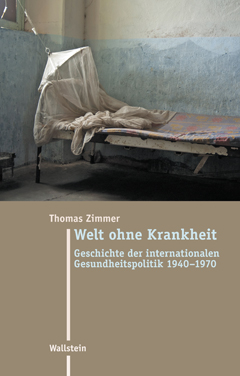Der Noisy Fringe
A once anemic little party has embraced nativism and grown in power. Is Germany in trouble?
Read
In Germany, like much of Europe, the antidemocratic forces of the far right have been gaining ground, even as chancellor Angela Merkel has kept extremism at bay in her own coalition, with often shrewd and at times brave politics. As she prepares to retire, can she cement a legacy of benevolent pragmatism and keep her country’s noisy fringe from coopting the opposition? This time on the show, two experts on German politics help us explore Merkel’s legacy and what it means for the rest of the European Union — and the United States.
In the conventional narrative of the post–Cold War era in Europe, liberal democracy prevailed across the former Soviet sphere. But Georgetown historian Thomas Zimmer says this triumphant view of history may be misguided, failing to capture the continuities of nationalism and authoritarianism lurking in many countries. And not only in central and eastern Europe: as France also has seen its own far-right, xenophobic political elements expanding. Even then, Zimmer argues, such extreme views seem unable to gain traction — in Germany at least — beyond a sliver of the electorate. So as long as mainstream conservatives themselves “hold the line,” he says, he’s not too worried.
Merkel, meanwhile, has liberalized her own right-leaning Christian Democratic Party, pushing it to the center, in the process expanding Germany’s political and economic influence in European affairs. But some of her decisions — such as moving her country away from nuclear energy and accepting Syrian refugees — have emboldened right-wing populists, who have found a home in the Alternative for Germany, or AfD, party.
As foreign policy expert Constanze Stelzenmüller suggests on this episode, the AfD’s growing presence in the German Bundestag, while numerically limited, is making it harder to build governing coalitions, and the concentration of support for the party in eastern Germany has deepened old divides. At the same time, though it lacks legislative clout, the party has taken advantage of the court system, bureaucratic maneuvering and pandemic denialism to further its anti-democratic, anti-E.U. ideals at a crucial moment for the union.
Meet
Constanze Stelzenmüller holds the Fritz Stern Chair at the Brookings Institution. Prior to that, she was a senior fellow at the German Marshall Fund of the United States. She has been an editor for the German weekly Die Zeit, and was a visiting researcher at Harvard Law School. Stelzenmüller’s popular work, in both German and English, has appeared in Foreign Affairs, Internationale Politik, the Financial Times, the International New York Times and Süddeutsche Zeitung, among other publications. Follow her on Twitter @ConStelz.
Thomas Zimmer is a visiting professor of twentieth-century history at Georgetown University’s BMW Center for German and European Studies. Earlier he taught contemporary history at the University of Freiburg. Zimmer’s dissertation received the German Historical Association’s Best Dissertation in the Field of International History and formed the basis for his first book, Welt ohne Krankheit: Geschichte der internationalen Gesundheitspolitik 1940-1970 (“World Without Disease: A History of International Health Policy, from 1940 to 1970”; Wallstein, 2017). Follow him on Twitter @tzimmer_history.
Stelzenmüller has followed Merkel closely and recently penned this profile of Germany’s first female chancellor for Foreign Affairs.
Besides threatening global health itself, the pandemic has also strained democratic “operating systems,” Stelzenmüller says.
Against isolationism, she and her colleagues have argued that transatlantic relations can and should be revitalized. Especially U.S.-German relations.
Check out all of Stelzenmüller’s contributions to the Financial Times, including a piece in January on Germany’s domestic political challenges and a recent critique of the E.U.’s lukewarm support for democratic resistance in Russia.
Stelzenmüller has published extensively on Germany and the future of Western democracy for Brookings.
Zimmer frequently writes on the history of global public health. As nations assesses their response to the coronavirus pandemic, his book World Without Disease offers some reminders of the politics behind the founding and development of the World Health Organization in the first place, after World War Two.
Underfunding of the WHO is the main problem international public health faces today, Zimmer argued last year in an op-ed for the Washington Post.
And in a 2019 scholarly article for the journal Modern American History, Zimmer calls into question the master narrative of “polarization” that has come into vogue among pundits and historians alike. This prism tends to obscure the deep roots of current divisions, he says.
Learn
As you’ll hear on the show, the AfD embodies a rising and increasingly radical right-wing populism in Europe.
Witness, for instance, the recent resurgence of political extremism in France, in the form of Marine Le Pen’s National Rally party. She has emerged as the top challenger in next year’s presidential election, and has been polling in a dead heat with incumbent President Emmanuel Macron.
Interested in that Ross Douthat op-ed that Stelzenmüller mentions on the show? Read that piece here and find out why Douthat is recommending we all watch the German-language Netflix series Babylon Berlin.
Zimmer is skeptical of comparisons of Trumpism to 20th century European fascism, but not all of our guests have been so cautious. In case you missed it, go back and hear why historian Jason Stanley doesn’t mind using “the F-word” pretty liberally.





